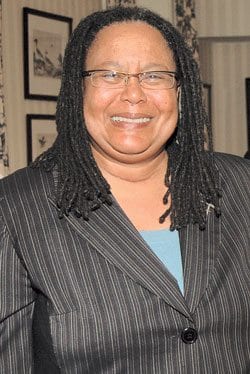
In an editorial published last week by The Harvard Crimson, the student newspaper, Dean of the College Evelynn M. Hammonds was asked to resign after her admission that she ordered unauthorized searches of faculty email accounts.
The admissions triggered a spirited on-campus debate among faculty members and students over the issue of email privacy and prompted University President Drew G. Faust to appoint an independent counsel and clarify faculty and student email privacy rights.
First reported by the Boston Globe, the email searches ordered by Hammonds were in the wake of last year’s cheating scandal involving the open-book, take-home exam of about 125 students in the upper-level government class, “Introduction to Congress,” taught by professor Matthew B. Platt.
Of those scores of students, only two names were published in newspaper accounts and Hammonds sought to find out who released those names. The first search involved the electronic mail accounts of 16 resident deans and had been limited to subject lines of only one of their two email accounts.
But at a faculty meeting last month, Hammonds admitted that an additional search was conducted on both accounts of one resident that went beyond a simple subject-line search.
“Since Hammonds provided misinformation regarding the highly sensitive issue of email searches,” The Harvard Crimson editorial stated, “and since she violated clear policy regarding those searches, her presence at the helm of the College stands as a roadblock to rebuilding trust between students, faculty, and the administration. For the good of the University, Hammonds must resign.”
As it is now, an email search of faculty accounts requires the approval of the Faculty of Arts and Sciences Dean and the University Office of the General Counsel. FAS Dean Michael D. Smith has said that he was not made aware of the second search until after it had been launched.
Harvard sociology professor Orlando Patterson wasted few words in describing Hammonds’ investigation. “It was a clear invasion of privacy,” Patterson said. “It was a serious breach of trust and those responsible for such actions, especially if there was untruthfulness involved, then they should do the right thing and resign.”
Reactions from other Harvard faculty were equally strong. Timothy McCarthy, a lecturer and program director at Harvard’s Kennedy School of Government, told the New York Times that the latest scandal is “disgraceful, even more so than the original cheating scandal, because it involves adults who should know better.”
Added Mary Waters, a sociology professor: “I think what the administration did was creepy … This action violates the trust I once had that Harvard would never do such a thing.”
Hammonds read from a prepared statement during a recent faculty meeting. “Although I consulted with legal counsel,” the Crimson reported, “I did not inform Dean Smith about the two additional queries. This was a mistake. I also regret the inaccuracies in our March 11 communication resulting from my failure to recollect the additional searches at the time of that communication,” Hammonds said.
In subsequent published interviews, Hammonds spoke of her 10-year-old son and how she stresses to him “how important it is to own up to your mistakes, to apologize, and to make amends.”
“I have to model that behavior for him,” she said, “This is what I’ve tried to do…”
Harvard law professor Charles Ogletree Jr. said the recent email searches were “a clear exception” to the school’s privacy policies in which electronic transmissions were “supposedly confidential.”
“People are watching,” Ogletree said, pointing out that school officials were now reviewing the school’s policies to insure that they are “clear and unequivocal” and that “a similar invasion doesn’t happen again.”
The privacy policy states that administration can search faculty members’ electronic records “in extraordinary circumstances such as legal proceedings and internal Harvard investigations.”
Such searches require the notification of the faculty member “unless circumstances make prior notification impossible, in which case the faculty member will be notified at the earliest possible opportunity.”
President Faust said that a new faculty task force had been formed to develop recommendations for a new email policy by the end of the Fall 2013 term.
But that may be too late to save Hammonds’ job as dean.
“Although only a handful of people’s accounts were searched,” The Crimson editorial stated, “the nature of the searches and the failure to adhere to policy damages all of us. Students and faculty must have confidence in their administrators, and in the case of Hammonds, we do not.”
Because Hammonds is the first African American dean of Harvard College, some faculty members are trying to assert that sanctions against her are racially motivated. But the racialization of the incident seems not to be gaining much support at this time, according to faculty members offended by Hammonds’ conduct.


![Banner [Virtual] Art Gallery](https://baystatebanner.com/wp-content/uploads/2024/04/Cagen-Luse_Men-at-store-e1713991226112-150x150.jpg)



